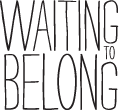Adoption: What helps and what doesn't
How to avoid words that hurt and choose words that heal
By Katie Porter
Well-meaning people can make statements that cause hurt to the child, the adoptive parents and the birth mother.
What hurts children who have been adopted?
- Comments such as "Do you think you'll try to find your real mom?" or "Do you know your real parents?" Adoptive parents are the real parents in every sense of the word. Biology isn't important.
- Saying "You must be so grateful they adopted you." Remember, for most of these kids, what they tend to remember is that they were removed from the only family they've ever known. It doesn't always seem like a good thing, especially at first.
- Adoptive parents shouldn't feel discouraged or get their feelings hurt if/when the child doesn't connect immediately or still shows loving feelings toward the birth family. In some situations, it can take a long time for that new relationship to develop. Remember, this is about the needs of kids, not the parents. The parents not feeling as loved as they would like doesn't invalidate the adoption.
- When an adoptive mother feels threatened by or has her feelings hurt if the child wants to contact the birth mother.
- Always refrain from telling the child unkind things about the biological family.
What helps children who have been adopted?
- Honesty is the best policy – talk openly about the fact that he or she was adopted.
- Allow the child to ask any questions about the adoption, birth family, etc.
- Create a scrapbook of personal history like photographs, notes and information on birth family.
- Medical history, if available.
- Maintain important connections as much as appropriate and possible; for example, loving foster parents, friends and coaches.
- If the child was adopted internationally, provide as much information on the country as possible.
- If beneficial and all parties are in agreement, it can be helpful to grow up knowing biological relatives as part of an extended family; this isn't appropriate in all circumstances.
What hurts adoptive families?
- Adoptive families absolutely feel their children are their real children; comments to the contrary are very hurtful.
- Treat all children the same regardless of whether they came through birth or adoption.
- Because God designed adoption, it isn't a second best option, so be sensitive about saying things that convey it is somehow a plan B.
- Comments like "I'm sure you'll get pregnant now that you've adopted" feed into unrealistic expectations.
- Family, friends and church members shouldn't assume they know what's best for the adoptive family without being willing to learn about the differences in parenting a child who was adopted.
What helps adoptive families?
- Consistent and specific prayer support is vital to an adoptive family.
- A new addition shower is very helpful, even if the family is welcoming home an older child.
- Ongoing support from friends and family – prayer, meals, cleaning, etc. It can take quite a long time before the family settles into a real routine and is doing well.
What hurts birth mothers?
- Comments like "I could never do that" tend to communicate that you would love your child more than they did and wouldn't be able to make an adoption plan.
- Don't assume she'll just move on with her life; this is a life-changing event and she needs time to grieve. Comments about her moving on and having more kids one day aren't helpful.
- Be honest with birth mothers on the front end and don't oversimplify the feelings they will experience.
- If an open relationship is agreed upon beforehand (i.e. updates, pictures, letters, etc.), it's important for adoptive families to follow through with that plan as long as it remains in the best interest of the children.
- Family and friends of the birth family shouldn't pretend the child doesn't exist – continue to validate the birth mother and the child she's carrying.
What helps birth mothers?
- Adoptive parents should refrain from representing the birth family in a negative light, regardless of the situation.
- Allow the birth mother time to grieve, and don't try to minimize the feelings she's experiencing.
- Reassure her that she is making the best decision for her baby.
- If appropriate, follow up from the adoptive family reassures her of the decision she made.
From Focus on the Family (US) website (Focusonthefamily.com). © 2010 Focus on the Family. All rights reserved. Used with permission.

